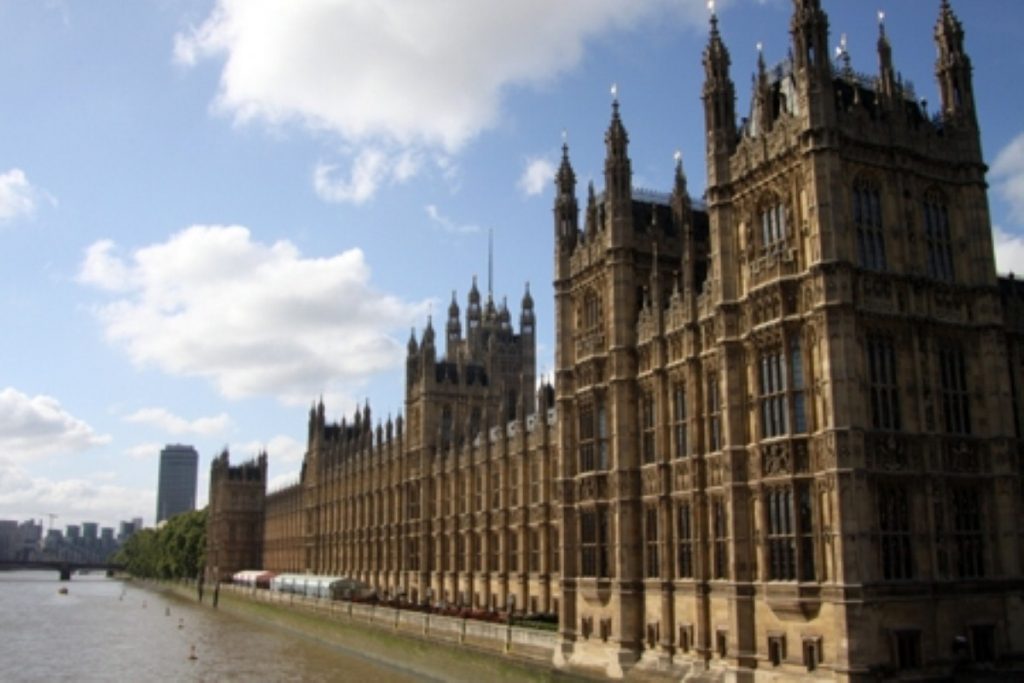A perilous time to be away from parliament
There is something very odd about being away from parliament when it is sitting. A lobby journalist separated from Westminster is like a Norwegian Blue parrot pining for the fjords. It yearns to be back in its native environment.
Last week, when parliament sat and I was away, I can confirm I did not experience these extreme emotions. But all the same, when I look back at the week I missed, I can't help but feel a lot of water has rushed under the bridge at breakneck speed.
In the four short days in which parliament sat, here's a pick of the constitution-related developments which rushed past.
Voter registration: Minister in defence mode


Mark Harper gave evidence to the political and constitutional reform committee, as the consultation on the government's proposals to introduce individual voter registration came to a close. The constitution minister was under pressure over voter registration, with fears that there could be a 20% decrease in the number of registered voters as a result of the transition from the current system. Harper pointed out that the feared drop is just a "worst-case scenario" and that there's "no evidence" this will actually become reality. But he conceded that moving to IVR "will be a challenge in any event".
I'm going to spend a pleasant two hours reviewing the footage of the select committee hearing in full to get back up to speed, and may blog separately on the main developments there.
Boundary changes: Scottish surprises
Last week saw the Scottish boundary commissioners unveil their proposed new electoral map. The process of equalising constituency sizes, and cutting the number of MPs from north of the border down from 59 to 52 in the process, has proved as fraught in Scotland as it did in England. Thanks to the narrow permitted range of electors required for each seat, between 72,810 and 80,473 voters, the commissioners have been forced to propose 16 new constituencies which cross council boundaries. This was to be avoided at all costs, but the commissioners' hands have been tied.
Here's this reaction from Willie Sullivan, the director of the Electoral Reform Society's Scottish branch: "This government's rigid 'one size fits all' approach was never going to fit Scotland – its cold mathematical vision of equality flies in the face of real communities, simple geography and common sense.
"The call for equal size seats dates back to the Chartists, but we doubt they would recognise the results. Instead the government risks making the constituency link a thing of the past."
Monarchy: Signs of movement on rules of succession
After years of campaigning, equality campaigners will be delighted by signs that the government is finally taking seriously calls for the rules of succession to be updated. At present, elder daughters have to give way to a younger son in the line to the throne; those who marry a Roman Catholic can't succeed to the throne; and all descendants of King George II can't marry without the monarch's consent.
All these are to be scrapped. But as the UK monarch is also the head of state of 15 other realms, they need to approve the changes, too. David Cameron has argued the existing rules are an "anomaly" which need correcting. But will Antigua and Barbuda, Australia, the Bahamas, Barbados, Belize, Canada, Grenada, Jamaica, New Zealand, Papua New Guinea, Saint Kitts and Nevis, Saint Lucia, Saint Vincent and the Grenadines, the Solomon Islands and Tuvalu agree?
Lobbying: A resignation leads to calls for change
Apparently there's been some sort of problem relating to a friend of a Cabinet secretary, whose shady links to the world of lobbying prompted a major resignation. The episode has resulted in suggestions that it might be worth implementing that register of lobbyists, after all. MPs have been recommending this for years, but there's been tortuously slow progress. As always, it takes a scandal to get things moving…









